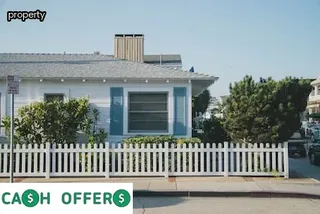Selling a home in Virginia requires homeowners to be aware of the state's disclosure laws. In most cases, Virginia law requires sellers to provide potential buyers with certain disclosures about the property.
These disclosures are intended to inform buyers of any known material defects that could affect their decision to purchase the home. Homeowners should also be aware of various state and local regulations that may require additional disclosures such as lead-based paint, radon gas, and asbestos materials.
Additionally, sellers must provide the buyer with an inspection report indicating current conditions of the property prior to closing. By familiarizing themselves with Virginia's disclosure laws and inspection requirements, homeowners can ensure they are in compliance with all applicable regulations when selling their home.

When it comes to selling a house in Virginia, homeowners should be aware of the required disclosures that must be completed on the Virginia Disclosure Form. This form is an important legal document that outlines any information about the property that can impact its value and desirability.
It is essential for homeowners to understand what needs to be revealed on this form and how it impacts their ability to sell their home successfully. It is important to note that failure to provide accurate disclosures could result in potential legal action or financial losses.
Homeowners should research all of the criteria they need to disclose and make sure they are accurately represented on the form. Additionally, sellers should also keep copies of all forms submitted as part of the sale process in case questions arise later on.
If there is any confusion or uncertainty, sellers should consult with an attorney or real estate agent who can help them navigate the disclosure requirements and ensure their paperwork is properly filled out before submitting it for review.
Homeowners selling a property in the state of Virginia may be exempt from filling out a disclosure statement. This document is typically used to inform potential buyers of any known issues with the property, such as pest infestations, structural damage, or other repairs needed.
However, some types of homeowners are not required to disclose this information and are exempt from providing a disclosure statement. Generally speaking, when an individual is transferring title of a property to another person, they must fill out a disclosure form.
Exemptions include transfers made between spouses or domestic partners as well as transfers that are part of an estate through inheritance or court order. For example, if someone dies and their home is passed down to their heirs, then no disclosure statement needs to be filled out.
Additionally, some types of properties such as mobile homes on leased land do not require disclosure statements either since they can’t be permanently affixed to the land and therefore don’t meet Virginia’s definition of real estate. When in doubt about whether or not you need to fill out a disclosure statement for your property in Virginia it is important to consult with your real estate agent for advice or contact an attorney who specializes in real estate law in the state.

In Virginia, it is illegal for a home seller to make any false or misleading statements or representations when selling their house. This includes making any false statements about the condition of the home, the materials used in construction, and the presence of environmental hazards.
As part of their disclosure requirements, sellers must also disclose any known defects in the home that would affect its value, such as a crumbling foundation or lead paint. It is important for homeowners to be aware of prohibited practices before listing their house on the market.
Failure to abide by these regulations can lead to serious legal consequences and costly fines. Additionally, buyers may have the right to rescind their purchase contract if they feel they were misled by the seller’s misrepresentations.
For this reason, it is essential that sellers do not engage in any prohibited practices when selling their house in Virginia.
When selling a home in Virginia, it is important to be aware of the federal regulations pertaining to seller disclosures. Homeowners must know what they are required to disclose under the Real Estate Settlement Procedures Act (RESPA).
This act requires that sellers provide potential buyers with information about any known material defects or other problems with the property, such as an issue with the roof or foundation. Additionally, sellers must disclose any facts that may influence a buyer's decision to purchase, including facts about zoning and neighborhood changes.
Failure to comply with these regulations can lead to serious legal penalties for both sellers and real estate agents. It is essential for homeowners to understand their rights and obligations when it comes to disclosing relevant information before selling their home.

When it comes to understanding the full scope of Virginia’s disclosure rules for home sellers, it can be difficult to know where to start. Fortunately, there are a number of resources available to help homeowners unravel the complexities of VA disclosure regulations.
For general information and guidance on the disclosure process, homeowners can visit their local real estate board or consult with a licensed real estate agent. Additionally, the Virginia Real Estate Board has an online publication that outlines all applicable laws and regulations related to seller disclosures.
Finally, individuals in need of additional assistance may want to consider consulting an experienced attorney who specializes in real estate law. With these resources at their disposal, homeowners can feel confident they have access to the necessary information and support needed as they prepare to put their property up for sale.
When selling a house in Virginia, homeowners must navigate through the necessary due diligence requirements of the sale. It is important to understand the Virginia Disclosure Act and its regulations as well as other disclosures required for a successful real estate transaction.
A seller must make sure to disclose all known material defects such as water damage, roof problems, or foundation issues. Additionally, a seller must provide information about any known past or current zoning issues or easements that could affect potential buyers.
Other items that sellers must reveal include information on lead paint and radon testing, septic system inspections and results, and any existing warranties or guarantees related to appliances and HVAC systems. All of these documents are required by law in order to protect both the buyer and seller throughout the process.
Therefore it is critical for sellers to be knowledgeable about their obligations under the Virginia Disclosure Act before putting their house on the market.

In Virginia, there are certain affirmative written disclosures that must be provided to potential buyers of a property. These include disclosures related to zoning, lead-based paint, radon gas, mold, soil erosion or landslide hazards and any other material defect or history of flooding or fire damage.
Additionally, they must provide information regarding any boundary line disputes, building permits and septic tank inspections. Homeowners in Virginia should take the time to understand what these disclosures involve before listing their house on the market.
It is important to note that failure to provide this information can result in costly financial consequences down the road. Therefore, it is essential for homeowners in Virginia to become familiar with the state's disclosure requirements prior to selling their home.
In Virginia, the legal principle of “Buyer Beware” applies to the selling of residential properties. This means that it is the seller’s responsibility to disclose any known issues with the property prior to sale.
Virginia requires that all property sellers provide a Property Disclosure Statement or Residential Property Disclosure Act form to potential buyers prior to entering into a sales agreement. This document must list any defects in the home that are known or should be reasonably expected by a seller.
This includes physical flaws (i., structural damage or water infiltration) as well as other potentially material facts such as ownership of mineral rights, zoning changes and boundary disputes with neighbours.
Failing to disclose these items can leave a seller open to potential lawsuits from dissatisfied buyers after closing. Furthermore, it is important for sellers to keep meticulous records throughout the process in order to protect themselves from liability if any errors occur during the transaction.
Sellers should also be aware that certain jurisdictions within Virginia may have additional disclosure regulations beyond those required statewide, so it is important for them to research their local area before listing their home for sale.

When selling a home in Virginia, sellers need to be aware of additional disclosures that are required beyond the standard disclosure process. The state of Virginia requires home sellers to provide buyers with information regarding the condition of the property and any other material facts or defects that could affect the value or the desirability of the home.
These disclosures must include details such as any existing encumbrances, any known structural problems, and information on past flooding or leaks. Additionally, seller disclosures must also include details about any improvements made to the property, such as renovations or remodeling, as well as information regarding lead-based paint, radon gas levels, and soil contamination.
Furthermore, sellers are responsible for providing buyers with a copy of their deed along with any Homeowners Association documents that may apply to the property. It is important for sellers to understand these additional requirements before listing their home for sale in order to avoid possible legal issues down the road.
When selling a house in Virginia, homeowners should consider utilizing the services of a realtor to ensure that they are informed about all applicable seller disclosures. An experienced realtor can help with the preparation and filing of required documents, as well as provide guidance on how to comply with any potential legal issues or buyer requests.
Utilizing a realtor can also maximize the value of your home by establishing an accurate listing price and staging the home for showings. Additionally, having a realtor handle negotiations between buyers and sellers can be beneficial as it allows for objective decisions based on market data rather than emotional attachment or pressure from either party.
Furthermore, a realtor will have access to resources such as local market data and professionals that may be needed during the sale process. Ultimately, utilizing a realtor when selling your home in Virginia is beneficial due to their extensive knowledge and experience in navigating through the complex process of transferring ownership.

When it comes to selling your home, some potential buyers may be looking for a perfect house with no issues. However, as a homeowner, you should inform potential buyers about any problems that your home may have.
It is important to know Virginia's seller disclosure laws so that you don't run into legal trouble when selling your house. In the state of Virginia, sellers must disclose all known issues in their property before listing it on the market.
This includes providing information on any repairs or renovations that have been done recently as well as any water damage and plumbing problems that may exist. The law also states that homeowners must reveal if their house has ever been the site of a crime and if there are any environmental hazards present on or near the property such as lead paint or mold.
Understanding what you must disclose can save you from costly legal fees and ensure that both parties involved in the sale are well-informed of the condition of the home before closing on the deal.
When purchasing a residence in Virginia, buyers should be aware of the many disclosures they receive from the seller. These disclosures provide important information about the property, such as its condition, any environmental concerns, and significant repairs or renovations that have been done.
Buyers should also understand what is included in the sale, such as appliances and fixtures. Knowing these details can help them make an informed decision when buying a home in Virginia.
Additionally, homeowners must understand their rights regarding disclosure before selling their house. They are required to disclose any known defects that could affect the value or enjoyment of the residence by potential buyers.
Furthermore, sellers must also provide certain documents including lead-based paint disclosures and Homeowner's Association documents concerning property boundaries and restrictions on use or improvement of the property. Familiarizing oneself with Virginia's seller disclosure requirements will ensure a smooth transition when buying or selling a home in this state.

Selling a home in Virginia can be a complex endeavor, and it's important for homeowners to understand the various State disclosure laws before they list the property. Understanding these rules can help sellers protect themselves from potential legal issues down the line, as well as provide them with an advantage in negotiations.
In Virginia, there are certain disclosures that must be made by sellers of residential properties, including material defects and lead-based paint information. These disclosures are required to ensure that buyers are fully aware of any existing problems or potential hazards so they can make an informed decision about buying the property.
Additionally, sellers must provide access to all areas of the property for inspections and disclose any known security risks such as radon or asbestos. Being aware of these requirements is essential for anyone selling a house in Virginia in order to avoid costly legal penalties or disputes with buyers.
When selling a house in Virginia, it is important for homeowners to be aware of the seller disclosure laws that are in place. It is required by law for sellers to disclose any known material defects regarding their property, including any problems with plumbing, electrical wiring, and structural elements of the building.
In addition, Virginia law requires sellers to disclose any environmental issues such as lead paint or asbestos. Homeowners should also be sure to disclose information about pest infestations, nearby death or crime scenes, and the condition of any appliances included in the sale.
Furthermore, it is important for sellers to provide buyers with documentation related to past repairs and renovations that have been done on the home. By understanding what must be disclosed when selling a house in Virginia, homeowners can protect themselves from potential legal complications down the road.

When selling a house in Virginia, realtors must disclose certain important information to homeowners before the sale of their property. This includes any potential legal issues that could affect the sale, as well as other relevant information such as liens and encroachments.
Homeowners should also be aware of any environmental hazards that may exist on the property, such as asbestos or lead paint. Additionally, realtors must disclose any known defects in the home or structures on the premises, such as electrical problems or plumbing issues.
Furthermore, realtors must reveal any latent defects that could become apparent after the sale is complete, such as termite infestation or foundation problems. Lastly, sellers must be informed about carrying costs associated with owning a home in Virginia and what measures need to be taken for a successful transfer of ownership.
Knowing these details ahead of time will help ensure that homeowners are prepared for all aspects of selling their house in Virginia.
Yes, Virginia is a full disclosure state when it comes to selling a house. Virginia homeowners need to be aware of the different types of disclosures they are legally required to provide.
The most common disclosure is the Seller’s Disclosure of Property Condition, which outlines important details about the home and any necessary repairs or upgrades that have been made. Homeowners must also disclose potential hazards such as lead-based paint, radon gas and hazardous materials.
Additionally, there are some counties in Virginia that require sellers to provide buyer’s with an information packet containing information about the area, local ordinances, schools and other specifics related to the property. By making sure all disclosures are provided up front and honestly, sellers can protect themselves from potential legal challenges after a sale has been completed.
When selling a home in Virginia, there are certain disclosures that must be provided to the seller. These disclosures include information about the condition of the property, any lead paint or asbestos issues, and any other known defects.
Sellers should also provide buyers with information on the zoning regulations applicable to their property, as well as any local ordinances or laws concerning building codes. Additionally, sellers need to inform buyers if any of their neighbors have initiated foreclosure proceedings against them or if they have pending lawsuits against them.
Buyers should also be made aware of any special assessments or taxes that may be due upon closing. Ultimately, it is important for homeowners to understand all of their disclosure obligations before they enter into a sales agreement and accept an offer from a buyer.
The Virginia Property Disclosure Disclaimer Act (VPDDA) is a law that requires homeowners in the state of Virginia to provide potential buyers with certain disclosures about their property prior to the sale of their home. This act is designed to ensure that potential buyers are fully informed about the condition of the home before they purchase it.
Under this law, sellers must disclose any known material defects or other issues with the property that they are aware of, such as structural damage, environmental hazards, or roofing problems. Additionally, sellers must also provide buyers with any relevant information regarding legally-required inspections and repairs that could affect the value or livability of the home.
By disclosing this information to potential buyers before the sale, VPDDA helps to protect both buyers and sellers by ensuring that all parties are well-informed before making any decisions.
Yes, Virginia homeowners must disclose any deaths that have occurred in the house before selling it. According to the Virginia Residential Property Disclosure Act, sellers of residential property must disclose "any death occurring on the property within three years prior to the transfer of ownership.
" This disclosure requirement applies to all forms of death, including natural causes and homicides. Homeowners should also be aware that failure to disclose a death may lead to legal action from buyers after closing.
Therefore, it is important for sellers in Virginia to take steps to uncover any relevant information about deaths in their homes before listing them for sale.